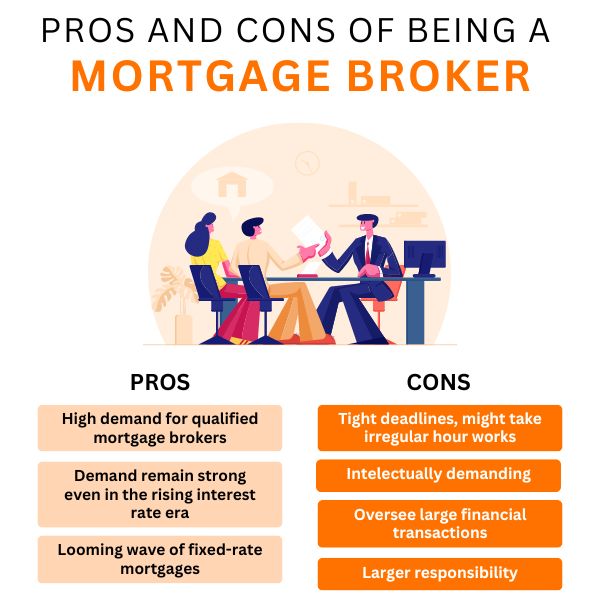Jumbo Loan: Secure High-Value Financing for Your Desire Home
Jumbo Loan: Secure High-Value Financing for Your Desire Home
Blog Article
Recognizing What a Jumbo Lending Entails and How It Differs From Traditional Car Loans
Navigating the complexities of big lendings discloses a funding choice tailored for those venturing into high-value genuine estate, typically surpassing the restrictions set by the Federal Real Estate Financing Agency. In comparison, standard financings are typically a lot more easily accessible, gaining from support by entities such as Fannie Mae and Freddie Mac. The significant threat related to jumbo car loans requires extra strict certification demands, consisting of higher credit history and considerable down payments. As these two car loan types provide to differing monetary landscapes, recognizing their nuances is crucial for making informed choices in the complicated world of property funding. How do you identify which course best suits your monetary technique?
Interpretation of Jumbo Finances
Jumbo loans are a sort of home mortgage that surpass the adhering car loan limits established by the Federal Housing Money Firm (FHFA) These loans accommodate debtors who need to finance residential or commercial properties that are much more expensive than what traditional finance limits allow. The FHFA develops annual conforming funding restrictions, and any kind of loan surpassing these thresholds is classified as a jumbo lending.
Commonly, big finances are used in high-cost genuine estate markets where home costs considerably exceed nationwide standards, such as in cities or high-end housing fields. As these financings are not qualified for purchase by Fannie Mae or Freddie Mac, they lug intrinsic dangers for loan providers because of their larger size and non-conformity (jumbo loan). Subsequently, loan providers frequently enforce a lot more rigorous certification requirements for big finances than conventional conforming financings.
Consumers seeking big finances should usually demonstrate a solid financial profile, consisting of a higher credit report, robust earnings confirmation, and substantial down repayment, often 20% or more. In addition, lenders may call for more substantial documentation to evaluate the debtor's capacity to manage larger regular monthly settlements. Recognizing the particular qualities of big lendings is vital for possible borrowers navigating this section of the home loan market.
Standard Car Loans Summary
While jumbo financings provide to high-value residential or commercial property funding, standard car loans represent the more typical home loan choice in the real estate market. These finances are not guaranteed or assured by any kind of federal government entity, such as the Federal Real Estate Management (FHA) or the Division of Veterans Matters (VA) Rather, they are backed by personal loan providers and abide by guidelines set by government-sponsored enterprises (GSEs) like Fannie Mae and Freddie Mac.
Standard loans are commonly offered with fixed or flexible passion rates and vary in regards to period, frequently covering 15 to 30 years. Debtors commonly like traditional car loans for their predictable month-to-month repayments, which can help with long-term financial planning. In addition, they are offered for primary houses, second homes, and investment residential or commercial properties, offering adaptability to satisfy diverse debtor requirements.

Trick Distinctions Between Fundings
Understanding the nuances between different sorts of go to this web-site finances is crucial for prospective homebuyers browsing the intricate home mortgage landscape. At the forefront of this decision-making process are jumbo car loans and traditional finances, each possessing distinct attributes and serving various borrower needs. The primary difference relaxes in the lending amount. Jumbo lendings exceed the conforming lending limits set by the Federal Real Estate Money Company (FHFA), which vary by region. In contrast, traditional financings comply with these limitations and are commonly bought by government-sponsored entities like Fannie Mae and Freddie Mac.

Additionally, the deposit demands can differ significantly. Big finances generally call for bigger down payments, sometimes exceeding 20%, to mitigate risk. Conventional car loans, on the other hand, may allow for lower down payments, with some programs accepting just 3% for qualified customers.
Credentials Needs
Safeguarding a big finance includes satisfying much more strict qualification needs contrasted to traditional finances, showing the enhanced risk to lenders. These loans, which go beyond the adapting car loan limits established by the Federal Real Estate Finance Firm (FHFA), are not qualified for purchase by Freddie Mac or Fannie Mae, thereby revealing loan providers to greater monetary risk - jumbo loan. Consequently, debtors should show a high credit reliability and financial stability
A durable credit history, normally 700 or greater, is essential for authorization. Lenders likewise anticipate a lower debt-to-income (DTI) proportion, commonly not exceeding 43%, making sure that customers can take care of considerable monthly repayments alongside other economic responsibilities. In addition, a considerable cash money reserve is usually required, generally amounting to 6 months of mortgage repayments, to comfort lenders of the debtor's financial durability.
Down settlement expectations are likewise raised, regularly beginning at 20% or more of the building's value. While this is a protect for loan providers, it demands substantial upfront capital from customers. Furthermore, evidence of regular, enough revenue is essential, usually verified with tax obligation returns, W-2s, and current pay stubs. Freelance people might require to supply more documents, such as earnings and loss declarations, to validate their earnings stability.
Choosing the Right Lending
When choosing the most appropriate lending option,Browsing the complexity of jumbo loans calls for learn this here now cautious consideration. With the broader series of choices available to those looking for jumbo car loans, the decision-making process must include an extensive evaluation of one's monetary profile and lasting goals. Unlike standard finances, jumbo loans usually include more stringent demands and differed rates of interest, which require comprehensive study and a clear understanding of one's financial standing.
When picking between various jumbo financing offerings, it is necessary to assess the financing terms, including rates of interest, settlement schedules, and connected costs. Consumers ought to contrast the rates offered by various lenders to ensure they safeguard the most beneficial terms. In addition, understanding the ramifications of dealt with versus variable-rate mortgages (ARMs) is essential, as each option offers distinctive advantages and dangers find here relying on market conditions and individual economic strategies.
Engaging with a monetary expert or home loan broker can supply important understandings customized to individual situations. These experts can help in browsing the subtleties of big car loans, making sure that consumers are educated and equipped to select a finance that straightens with their economic objectives, ultimately facilitating a smoother home-buying process.
Conclusion
In summary, jumbo car loans work as a monetary tool for acquiring high-value homes, requiring strict qualification needs and higher rate of interest as a result of the elevated danger for loan providers. Unlike traditional finances, which comply with FHFA restrictions and may receive backing from Fannie Mae or Freddie Mac, big financings call for a minimal credit report rating of 700 and considerable deposits. Comprehending these distinctions is crucial for borrowers in high-cost realty markets to figure out the most suitable financing alternative for their requirements.
The FHFA establishes yearly adhering lending restrictions, and any type of funding surpassing these limits is categorized as a jumbo financing.
At the leading edge of this decision-making process are big car loans and standard finances, each having distinctive qualities and offering different debtor needs.Safeguarding a jumbo financing involves fulfilling much more rigorous qualification needs compared to traditional lendings, mirroring the increased danger to lending institutions. Unlike traditional financings, jumbo finances frequently come with more stringent needs and varied rate of interest prices, which demand complete research and a clear understanding of one's monetary standing.
Unlike standard loans, which adapt to FHFA restrictions and might receive backing from Fannie Mae or Freddie Mac, jumbo finances call for a minimum credit history rating of 700 and significant down repayments.
Report this page